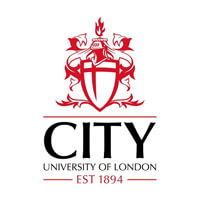fees waived
Mechanical and Design Engineering, BEng (Hons), with industry placement
City, University of London, United Kingdom
Subject ranking
UK / ARWU 2024 12th
UK / THE 2025 36th
UK / Guardian 2025 38th
Costs
food & rentS$25.1K / year
Entry requirements
Scholarships
Limited quantity
Information
Code
Intakes
Website (External)
Programmes
Information
Duration
2029
Mechanical and Design Engineering equips students with scientific, mathematical, and technical skills to design, develop, and optimise advanced machines and systems, focusing on sustainable, innovative solutions for challenges in transport, energy, and manufacturing. The programme emphasises professional skills through individual and group projects, strong industry connections, and access to world-class facilities like thermo-fluid laboratories and wind tunnels. Students benefit from City's central London location, international aviation links, and opportunities for placements to enhance employability, with degrees expected to gain accreditation from the Institution of Mechanical Engineers and the Royal Aeronautical Society.The curriculum builds a broad foundation in engineering subjects, specialising in areas such as materials, thermo-fluids, and structural dynamics. It integrates themes like social responsibility and the circular economy across years. First-year modules cover mathematics, mechanics, and electronics; second-year focuses on fluid mechanics and mechatronics; and third-year includes advanced topics like heat transfer and control engineering, culminating in an individual project. Assessment combines coursework, exams, and practical reports, with grades weighted toward later years.
You will develop a broad background in engineering subjects and concepts, before building a specialism in mechanical and design engineering subjects. These will include material and manufacturing, thermo-fluids, structural dynamics, and heat transfer. The Engineer in Society is an innovative theme across each year. We introduce you to the economic, social and technical context where engineers work, and develop your social responsibility, knowledge, and topical engineering skills. Year 1 Our largely shared first year gives you a foundation in mathematics, engineering, physics, materials and manufacturing, thermo-fluids, electronics and computing. -The Engineering in Society - Social responsibility (15 credits) -Engineering Design 1 (15 credits) -Introduction to Mechanics of materials and manufacturing (15 credits) -Electronics - including circuits, digital and analog electronics (15 credits) -Introduction to programming (15 credits) -Engineering Science (15 credits) -Mathematics 1 (15 credits) -Introduction to Thermodynamics and Fluid Mechanics (15 credits) Year 2 Begin to specialise with modules including fluid mechanics and thermodynamics, structures and materials, mechatronics and systems. Learn how mechanical and design engineering is part of the circular economy. -The Engineer in Society: Sustainability and Circular Economy (15 credits) -Mathematics 2 (15 credits) -Engineering Design 2 (15 credits) -Fluid Mechanics (15 credits) -Structures and Materials (15 credits) -Thermodynamics (15 credits) -Mechatronics and Systems (15 credits) -Data Analysis for Engineers (15 credits) Year 3 Deepen your expertise with applied modules in the analysis and design of mechanical engineering systems, through-life engineering, heat and mass transfer, and control engineering. You will apply real-world problems through an engineering research or design project. -Individual project (30 credits) -Mechanical Engineering in the society (15 credits) -Structural Analysis and FEM (15 credits) -Engineering Design (CAD-CAM) (15 credits) -Mass, Momentum and Heat Transfer (15 credits) -Through Life Engineering (15 credits) -Control Engineering (15 credits)

